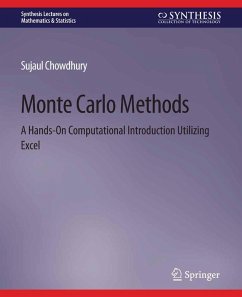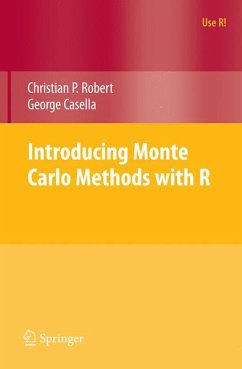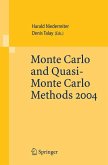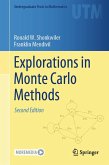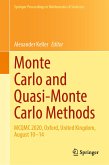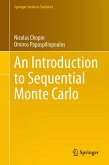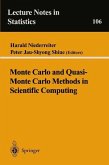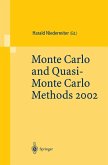This book is intended for undergraduate students of Mathematics, Statistics, and Physics who know nothing about Monte Carlo Methods but wish to know how they work. All treatments have been done as much manually as is practicable. The treatments are deliberately manual to let the readers get the real feel of how Monte Carlo Methods work. Definite integrals of a total of five functions ¿¿¿¿(¿¿¿¿), namely Sin(¿¿¿¿), Cos(¿¿¿¿), e¿¿¿¿, loge(¿¿¿¿), and 1/(1+¿¿¿¿2), have been evaluated using constant, linear, Gaussian, and exponential probability density functions ¿¿¿¿(¿¿¿¿). It is shown that results agree with known exact values better if ¿¿¿¿(¿¿¿¿) is proportional to ¿¿¿¿(¿¿¿¿). Deviation from the proportionality results in worse agreement. This book is on Monte Carlo Methods which are numerical methods for Computational Physics. These are parts of a syllabus for undergraduate students of Mathematics and Physics for the course titled "Computational Physics." Need for the book: Besides the three referenced books, this is the only book that teaches how basic Monte Carlo methods work. This book is much more explicit and easier to follow than the three referenced books. The two chapters on the Variational Quantum Monte Carlo method are additional contributions of the book. Pedagogical features: After a thorough acquaintance with background knowledge in Chapter 1, five thoroughly worked out examples on how to carry out Monte Carlo integration is included in Chapter 2. Moreover, the book contains two chapters on the Variational Quantum Monte Carlo method applied to a simple harmonic oscillator and a hydrogen atom. The book is a good read; it is intended to make readers adept at using the method. The book is intended to aid in hands-on learning of the Monte Carlo methods.
Dieser Download kann aus rechtlichen Gründen nur mit Rechnungsadresse in A, B, BG, CY, CZ, D, DK, EW, E, FIN, F, GR, HR, H, IRL, I, LT, L, LR, M, NL, PL, P, R, S, SLO, SK ausgeliefert werden.

